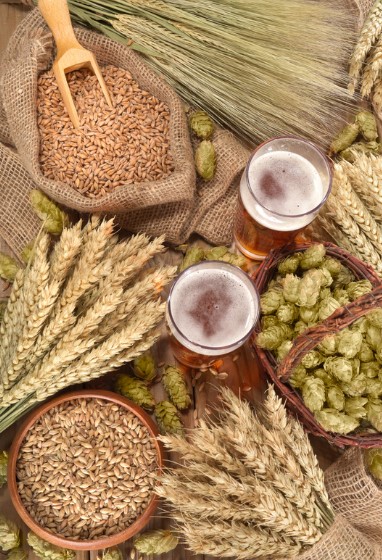Beer
Beer Formulation and Brewing
Beer recipes have been found on Babylonian clay tablets dating back to 4300 BC. The term beer includes every type of fermented malt beverage, including ales, lagers, and all hybrids of the two.
Beer is made with malted cereal grains (which could include barley or other grains), hops, and water that is fermented by adding yeast. Most beers are malt beverages except a few that are fermented from something other than barley malt, such as gluten-free beers made from buckwheat, rice, or sorghum malt.
Microbreweries, midsize craft brewers, and large craft brewers are all working to tap into a market that is mature, but rife with innovation. The surge in the craft beer market, fast-changing consumer tastes, and a complex regulatory environment, mean that brewers need to stay proactive and creative to keep up.

From sugar-brews to CBD-infused beer, keeping tabs on the ever-changing world of beer is exciting and challenging. There are opportunities to innovate in the areas of flavoring, packaging, and marketing, but it all starts with a solid foundation of knowledge and experience in the beverage market.
Growing a successful beer brand requires:
A deep understanding of brewing ingredients and how they interact and perform in beer,
The ability to produce a clear statement of process (SOP),
The knowledge to stay current with federal and state regulations and import/export requirements.
The skills to develop the right plans and team to market and distribute the end product, and
A system for staying in tune with customer trends, desires, and preferences.
From there, brewers can experiment with the latest flavors, packaging design, and new ways to get their beer into the hands of consumers.
Related Services for the Beer Industry:

























